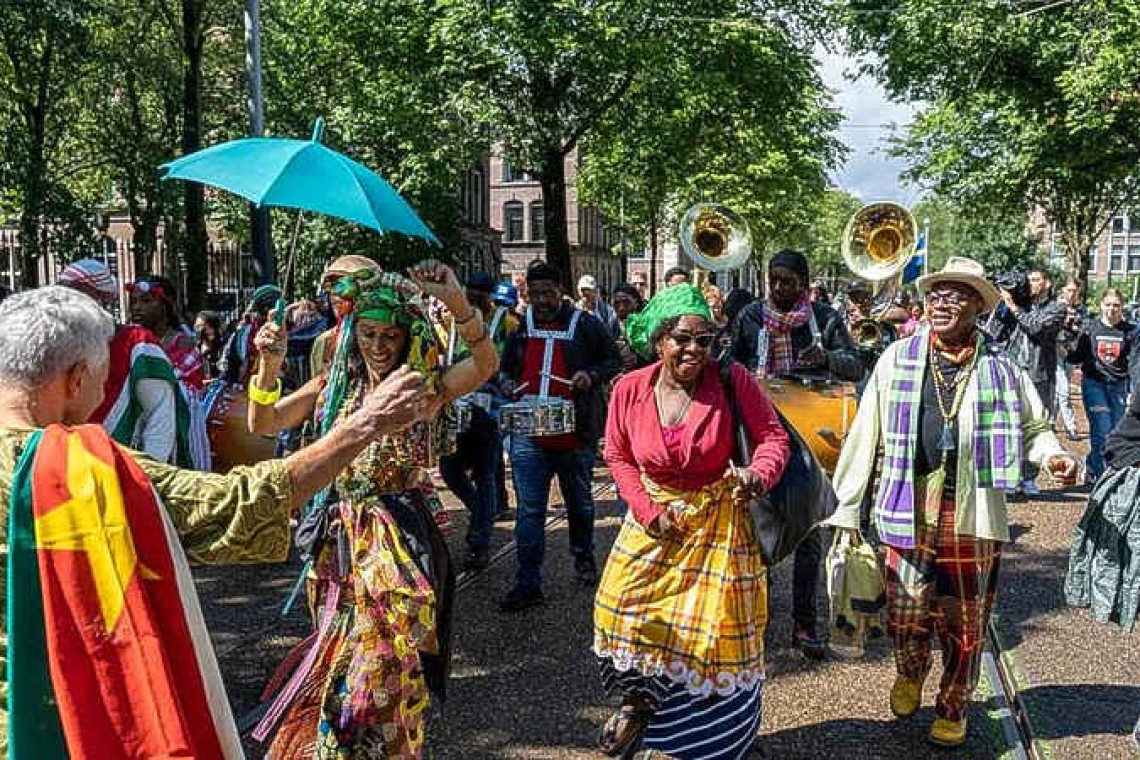The National commemoration of the Dutch slavery past coincides with the Keti Koti Festival. This is a time for collective remembrance of the past’s injustices and for celebrating freedom, equality, and unity. Keti Koti is a Surinamese concept that means “Broken Chains”.
THE HAGUE--The potential presence of House Speaker Martin Bosma at this year’s national slavery remembrance ceremony Keti Koti continues to stir controversy. The issue resurfaced during a roundtable discussion in The Hague on Thursday, held in advance of a parliamentary debate on June 11.
Last year, widespread protests over the invitation extended to the far-right PVV politician led the National Institute for the Study of Dutch Slavery and its Legacy NiNsee to rescind it, citing security concerns.
As this year’s commemoration approaches, NiNsee is urging the Dutch House of Representatives to engage in self-reflection over how it chooses to be represented at the solemn event.
DENK Member of Parliament (MP) Dogukan Ergin asked NiNsee board member Wendeline Flores to reflect on last year’s events and weigh in on whether Speaker Bosma would be welcomed this year.
Flores responded diplomatically, expressing disappointment that the controversy last year overshadowed what should have been a powerful close to the nation’s official year of remembrance. She refrained from directly addressing Bosma’s attendance but emphasised the importance of parliamentary representation.
“We hope and expect the House of Representatives, as the institution that represents the people, to be present,” said Flores. “It is up to the House itself to reflect internally on how it wishes to be represented. That is not something I can influence.”
Anthropologist Mitchell Esajas, founder of The Black Archives, took a firmer stance. He stated unequivocally that Bosma is not welcomed at the national commemoration unless he publicly retracts past remarks about slavery and the enslaved people’s revolt leader Tula.
“Other representatives of Parliament can be sent instead – people who are open to connection and willing to engage in meaningful dialogue,” Esajas said.
PVV MP Peter van Haasen, who was present, criticised the exclusionary tone of the remarks about Bosma and the PVV. He argued that such positions are inconsistent with the goal of fostering unity. He also drew parallels to the divisive debate over Zwarte Piet, which he claimed had a polarising rather than unifying effect.
In response, Esajas stressed the importance of growth and new understanding. “Some cling to nostalgia and mythical figures,” he said. “But others are willing to learn. My appeal to all here, and especially to members of your party, is to remain open to new knowledge and change.”
The controversy stems from statements Bosma made before becoming Speaker of the House. As a PVV MP, he dismissed discussions of slavery as “slavery whining,” accused anti-racism advocates of “anti-white racism,” and referred to remembrance efforts as “propaganda and indoctrination.” He also objected to the formal rehabilitation of Tula, describing him as a “racist murderer.”
Bosma has previously expressed admiration for the apartheid regime in South Africa and used the term “replacement” to describe immigration trends – views that critics say run counter to the
spirit of reconciliation that the commemoration seeks to embody.
The national slavery remembrance ceremony is scheduled for July 1. Whether Bosma will attend – and how that will be received – remains to be seen.







